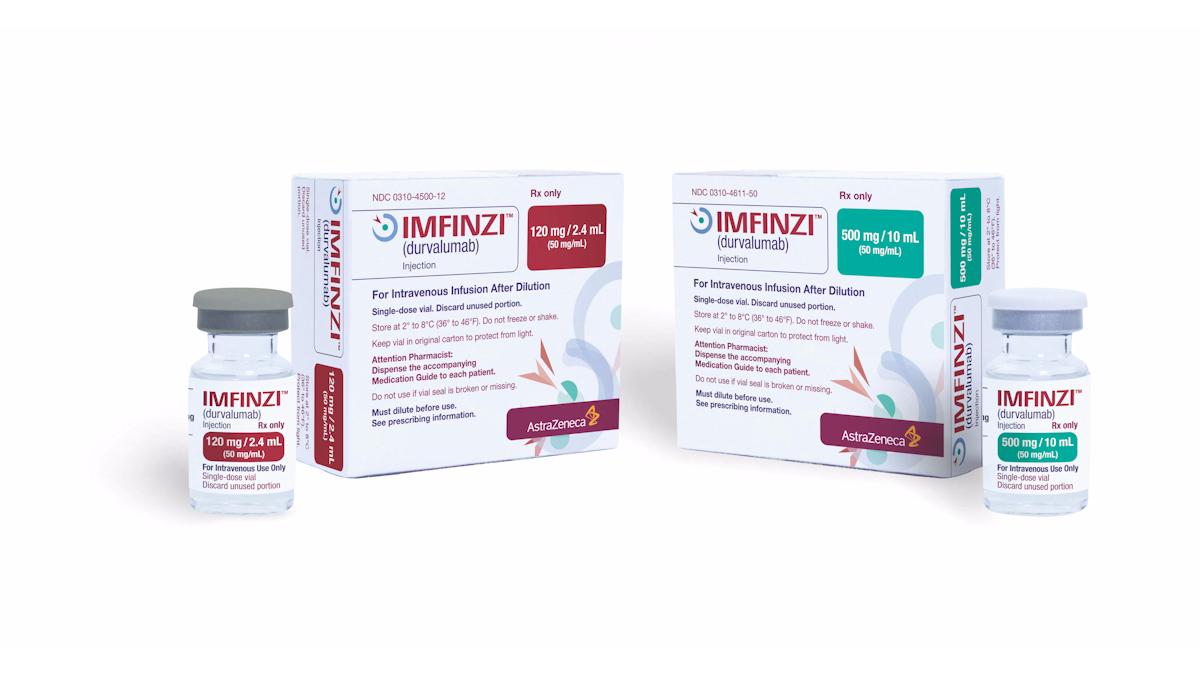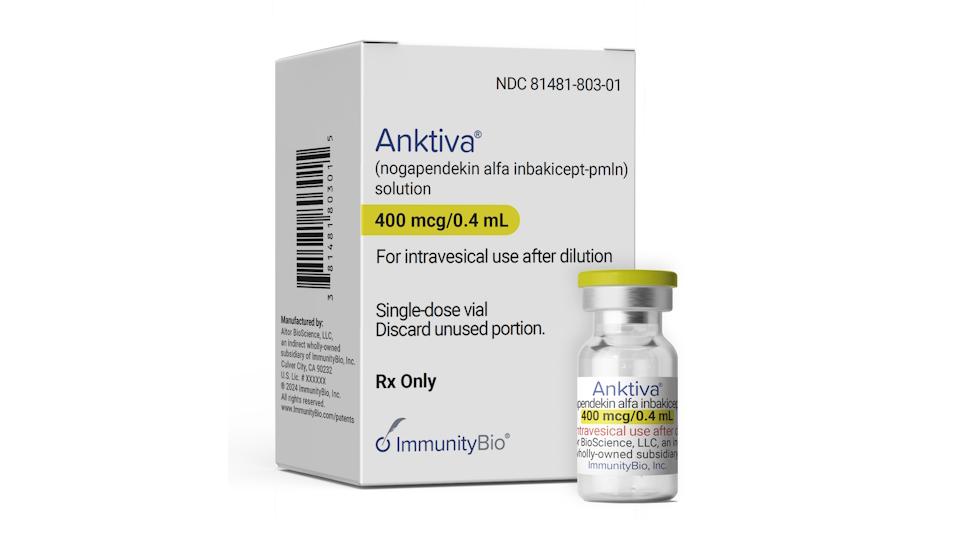AZ claims EU okay for Imfinzi in bladder cancer

AstraZeneca has claimed EU approval for its cancer immunotherapy in bladder cancer, a disease that the company has said is central to its growth plans for the product.
The European Commission has cleared OD-L1 inhibitor Imfinzi (durvalumab) to treat adults with resectable muscle-invasive bladder cancer (MIBC), given in combination with platinum chemotherapy before surgery to remove the bladder and as a monotherapy afterwards to stop the cancer from coming back.
The approval – which follows a positive verdict from the US FDA in March – draws on the results of the NIAGARA study, which was reported at last year's ESMO congress and showed a clear benefit for the regimen in improving event-free survival (EFS) as well as overall survival (OS). The data have also been published in the New England Journal of Medicine (NEJM).
In NIAGARA, patients treated with the Imfinzi perioperative regimen showed a 32% reduction in the risk of disease progression, recurrence, not undergoing surgery, or death, while the risk of death was reduced by 25%. After 24 months, 82% of patients taking the immunotherapy were still alive compared to 75% of the control group.
Bladder cancer has been billed by AZ as a "meaningful new opportunity" for Imfinzi, which brought in around $4.7 billion in sales for AZ last year from its use across lung, liver, endometrial, biliary tract, and bladder cancers.
It is the first perioperative immunotherapy for MIBC patients to be approved in the EU, although Bristol Myers Squibb's Opdivo (nivolumab) was cleared in 2022 as an adjuvant (post-surgery) option for MIBC tumours that express the PD-L1 biomarker at a level of 1% or more based on the CheckMate-274 study.
Dr Michiel Van der Heijden, of the Netherlands Cancer Institute, an investigator in the NIAGARA trial, said that there is a pressing need for new treatment options in MIBC as "currently nearly half experience disease recurrence despite treatment with neoadjuvant chemotherapy and surgery to remove the bladder."
Beyond MIBC, AZ is also hoping to expand the labelling of Imfinzi to include non-muscle invasive bladder cancer (NMIBC), a larger indication which accounts for more than 70% of new bladder cancer diagnoses.
In May, it reported top-line results from the POTOMAC trial that revealed one year of treatment with Imfinzi plus standard BCG induction and maintenance therapy achieved a statistically significant improvement in disease-free survival (DFS).
Other upcoming bladder cancer readouts, meanwhile, include the VOLGA study in patients with MIBC who are ineligible or refuse to take cisplatin and NILE as a first-line therapy, with or without AZ's CTLA4 inhibitor Imjudo (tremelimumab), for locally advanced or metastatic disease.
In the frontline setting, Imfinzi could face strong competition from the regimen of MSD's PD-1 inhibitor Keytruda (pembrolizumab) and Astellas/Pfizer's anti-Nectin-4 drug Padcev (enfortumab vedotin), which aced the EV-302 study last year.
Imfinzi had an earlier US approval in previously treated adult patients with locally advanced or metastatic forms of bladder cancer in 2017, although that was subsequently withdrawn after the failure of a confirmatory study.
Meanwhile, the NMIBC setting has become increasingly competitive of late with approvals for Keytruda, ImmunityBio's Anktiva, and Ferring's Adstiladrin, and filing for Johnson & Johnson's intravesically-delivered TAR-200.












